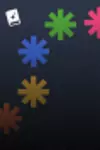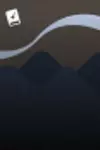
Perry
3.5
Enjoyable and weird. The end was a little bit on the anti-climactic side, but still pretty distressing.
Definitely gothic horror vibes, which is grand. I was disappointed at first by the ending, but the more I think about it, the more I think my issue was the slightly choppy translation. OMG, the Shito family. It is wack and perfectly, gothically fun.
Not bad. I think the end was a bit too rushed, which made it unsatisfying. I'm actually really frustrated that Robert didn't get the info he clearly needs for closure. And I logically KNEW that who the villain was made the most sense, but I was still surprised. And dismayed. There were a few things that needed more buildup and foreshadowing. But in all, this was a really good read.
An introduction to some Black writers of whom I've either not heard or whom I have not read before. The stories are like any anthology–all over the place. Some are good, some are meh. Same with the art. There is some absolutely gorgeous art pieces in this. So, like many anthologies, I'm glad I picked it up to discover some new writers and artists.
Ahhh, the late 90s. Sketchy music, fashion, and hairstyles, and difficult time to be LGBTQIA. Especially trans. But this is an uplifting story of Jet, born female, and never fitting in. The art is indie sloppy, and works pretty well, although at times the action is hard to follow. The writing is choppy, but it still rings true to the period, to Jet. And, in the end, Jet and their friends Sasha and Ken, even Jet's parents, are super supportive. The end made me happy. Jet's tale has a good ending.
There are a couple loose ends though, especially in regards to Rene.
Thank to go the authors and publisher for a for of this work in exchange for a fair review.
Thank you to the publisher for providing a free DRC in return for an honest review.
Um. This was adorable. The art was adorable, and each mini comic, whilst reliant on current trends and lingo, was genuinely charming and funny. I actually find myself really wanting more misadventures of this really cute lot. Also–soooo relatable!
Of course, knowing Oscar Isaac is involved with this comic made me want to read it. I mean, if you don't love Oscar Isaac, I just don't know what to do with you.
That being said. Gator, our hero, is incredibly unlikable for the most part. He's selfish, crooked, seedy, cheaty, and quite dumpy. But there's hope for him. According to a strange, mystical creature who pops up partway through this volume. There are mythical beings seemingly based upon Judeo-Christian mythology, beings from limbo fighting for the good side AND the bad side. And our man Gator seems caught in the middle.
It's all just another day in the life of Gator, as he's being seedy and having an affair with a buddy's wife. Gator and buddy are both cops. When something terrible happens to the buddy, Gator–who is elsewhere–thinks he's been shot and has a meltdown. In reality, he begins to suffer the wounds of people he's wronged.
The aforementioned strange mystical creature tells him what's up, and he's caught in a battle between good and evil.
I feel like Gator is a standard cretin with a secret emo streak and backstory. Nothing really original about any of this, although the fantasy elements give it the extra oomph it needs. I think there's potential here, but it didn't rise to meet it with this volume.
Thank you to the publisher and NetGalley for an ARC in exchange for an honest review.
Grief is basically the thing with which you're left at the end of this book. Everyone needing to believe extreme sacrifice is worth a good outcome for someone.
This was an beautiful evocation of a place with which I am not familiar. And it's also a depressing study of humanity, family, and love. It broke my heart.
Thank you to Cannongate and NetGalley for providing me with an ARC in exchange for an honest review.
So. Well. I debated what to give this, because I truly appreciated the things Ms Godden said here. I even agree with the politics of it. Intersectional feminism, discussions of poverty, misogyny, racism, sexism–all necessary things to discuss, all things about which we must do something.
My problem was the way the very minimal–for all intents and purposes, non-existent–story handled everything. I was very excited to receive an ARC. Death is in my wheelhouse. And whilst Death has been portrayed as a woman before (Sandman, of course), she has never been an overtly Black woman, or an overtly homeless person. So that is potentially cool. As is the general concept of a young person finding her desk and buying it, and then becoming a sort of friend to her.
But the concept is all this book has. It has no story. We have background on Wolf, one of our narrators, aforementioned desk-buyer and Death-friend, and his tragic childhood: First, he loses his mother in a fire and incidentally meets Death; after which, he ends up at the home of his abusive grandfather and his trampled grandm0ther. He also is in therapy? There was a strange moment when he's in therapy and realizing his personal relationship with Death will end soon. So, was she in his mind? Some sort of coping mechanism?
That's about as much plot as a reader will get. The rest is vague ruminations on Death and politics and the mess of the world around us. One nonsensical passage implies Jack the Ripper was a woman dressed as a man? Was this supposed to be as transphobic as it felt?
This book has mishmash of prose, poetry, lyrics, and it can be pretty incoherent at times. There are some lovely sentences; then, there are repetitive ramblings that read like mediocre poetry and filled with circular wording. It becomes tedious and also seems to lose all sense of meaning.
If you're looking for a novel, avoid this. This isn't a novel. A novel doesn't have to have a traditional plot, but it should at least have some dynamism, some change, some conclusion. Rather, this book should be advertised as a collection of loosely connected poems about Death and the darkness of the world around us in the here and now. But calling this a novel does a disservice to readers and the book itself, because the book will be set up to fail because of our expectations.
Also, don't really expect to connect with anyone. This isn't that type of work. This is more a poet's attempt at working through the tragedy around us. Which is understandable, sympathetic, and artistic. But, perhaps because of my expectations, this book left me cold; it was tedious, repetitive, as I've said, and tried to hard to have clever wording that just fell apart. There is merit here; however, I just don't think it's as effective as the author might have wished.
3.5 stars.
I am enjoying Q'ira's plan. It's been fun so far. And then Knights of Ren are far better served in THIS than they are in the sequel trilogy OR ‘The Rise of Kylo Ren,' which was, to say the least, lackluster after the first issue. Which is sad, because I like many of Soule's other Star Wars outings. So I'm going to go ahead and say TRoKR wasn't his fault; it was Disney's.
I am also going to go ahead and consider THIS more cannon, because the Knights of Ren are completely different people in this than in the sequel trilogy stuff. I was surprised, to say the least, that there was a small person and a foul-mouthed female–rather than the all-dude posse of the sequel trilogy stuff. I could accept the existence of Ren more in this one. And they were given way more to do.
This little series is elevating the more lackluster elements of the Star Wars movies. This fun is more what I was expecting from TRoKR.













































